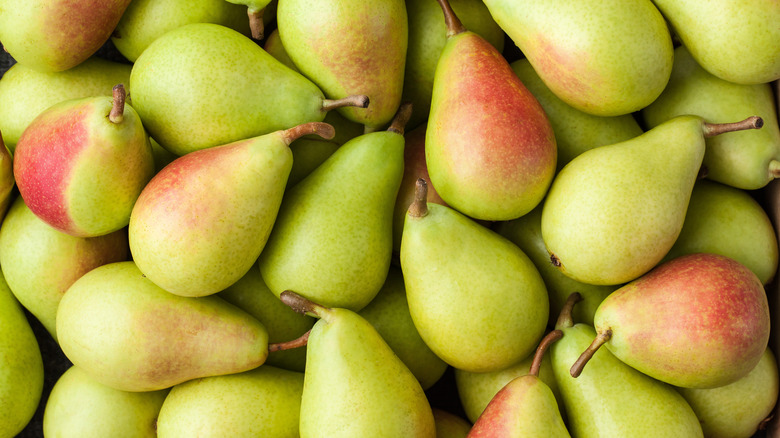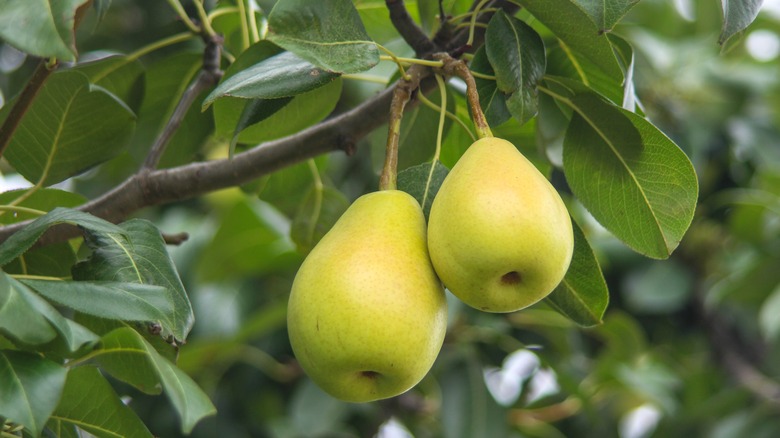Why You Should Never Store Pears In The Refrigerator
Pear season may be drawing to a close, but that doesn't mean learning how to store the fruit is any less important. When it comes to produce, The New York Times explains that proper temperature and airflow are massive factors in ensuring quality and shelf life. Although many fruits fare well in the crisper drawer of your fridge, the same can't be said for pears.
There are thousands of pear varieties, each with its own unique shade and taste. While the bell-shaped fruits are often quite sweet (Seckel pears, especially), some varieties like the freckled Forelle are more tart, whereas others like the ruby Starkrimson are more floral, or even musky in the case of a matte brown Bosc, notes Saveur. Interestingly, even texture can vary from buttery to extra firm, which is why a soft Comice can be eaten as is, whereas a crisp Anjou or Asian pear works well in pies or even poached.
Regardless of which type you gravitate towards, starting with fresh produce is important. Have a Plant recommends opting for sweet-smelling pears with smooth, unbruised skin — you can also check the neck near the stem for firmness. As for storage, step away from the fridge!
Refrigeration impacts flavor and texture
Pears ripened off the tree tend to be less mealy since they aren't as susceptible to developing deposits of cellulose and lignin, which is why Cook's Illustrated explains that pears are picked slightly under-ripe and kept in cold storage, as this conditions pears to fully mature and become their juiciest at room temperature. While the thought of attracting fruit flies might sway your decision to keep pears in the fridge, don't do it.
USA Pears shares that refrigeration (35 to 45 degrees Fahrenheit) should be avoided for store-bought pear as this can stunt the ripening process, but also lead to a less flavourful and sandier texture as the fruit isn't able to properly mature. Consequently, Self states that only after pears have matured on the counter, can they be moved back into a refrigerator. At this stage, the cooler temperature can increase the fruit's shelf life without compromising flavor or texture since they've had time to develop in complexity and sweetness. There you have it, you'll never eat another gritty pear again.

